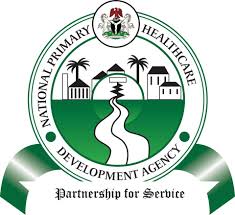By Zayamu Hassan
The National Primary Health Care Development Agency (NPHCDA) has concluded plans to launch an initiative that will expand and improve primary health care across the country.
Speaking at a media briefing to announce the forthcoming PHC Summit, the Executive Director of the NPHCDA, Dr. Faisal Shuaib, said the programme which is christened ‘Re-imagining PHC’ will be implemented by a coalition of private sector leaders, international agencies and the government.
He regretted that the problems caused by lack of primary health care are huge, stressing that 128 of every 1,000 children under 5 in Nigeria die and 20% of global maternal deaths happen in Nigeria.
While reiterating that the Nigeria’s health system needs recalibration, Dr. Shuaib said: “Fewer than half of Nigerians have access to quality primary health care services. Even those that do are offered fragmented and often ineffective services.
“Investment is siloed into dedicated programmes like polio, malaria or HIV – instead of an integrated programme of infectious and chronic illnesses.”
He explained that through Re-imagining PHC initiative, “we will build on our national experience fighting COVID-19- Ebola, Polio, and many other health challenges to implement long-overdue changes that will transform the way health care is delivered in Nigeria.
“It is an ambitious plan to work with a diverse group of domestic and international partners to construct a grassroots network of quality primary care.”
He emphasised the need to begin radical change in order to save and improve the lives of millions of Nigeria.
“Hundreds of thousands of Nigerians die each year from treatable, preventable causes – due to a lack of adequate or accessible primary health care services. We need to end this, we need to begin making radical changes, now,” he stressed.
Explaining how the initiative will transform Nigeria’s health sector, Dr. Shuaib said that working with local and state governments, “we will pool resources and commitments toward practical, high-impact interventions across all aspects of PHC delivery.
Traditionally, public health funding has targeted specific threats such as polio, malaria or HIV/AIDS, at the expense of a wide range of chronic illnesses and health wellbeing.
“We will invest in building up our failing PHC system so that it can treat infectious diseases as well as address chronic illness; prevention, diagnosis and referral; maternal and child-care; and community wellness.
“This will mean investing in primary health care, human resources and infrastructure across the country.
“We will restore health centers; ensure provision of general, laboratory, clinic and personnel equipment; ensure the availability of quality drugs; procure ambulances for accessibility; and, last but certainly not least: we will train and employ quality nurses, midwives, clinical staff and non-clinical staff at health centers across Nigeria.”
Speaking on behalf of development partners, the Country Representative of the World Health Organisation (WHO), in Nigeria, Dr Walter Kazadi Mulombo, noted that primary health care is key to attaining Universal Health Coverage (UHC).
According to him: “Universal Health Coverage is a critical component of the Sustainable Development Goals, especially Goal 3: ‘Ensure healthy lives and promote well-being for all at all ages’ which emphasizes the need for health to be accessible, equitable, safe, effective, quality and affordable without the risk of financial hardship.”
Dr Mulombo, however, insisted that progress towards UHC involves building and extending equitable, resilient and sustainable health systems that are based on primary health care, stressing that the achievement of which requires political will, deliberate and intentional effort for resource mobilization, especially domestic resources, and local ownership for sustainability.


